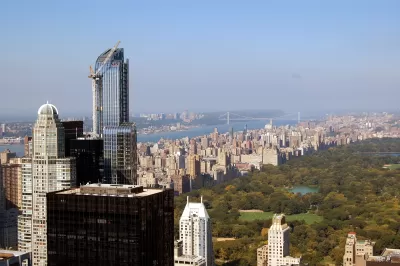Homeowners in almost every corner of the United States are making more off the accruing value of their homes every hour than minimum wage workers. In some cases, homeowners are even making a lot more than decent middle class wages.

A post on the Zillow Research digs into the amount of money homeowners are making in equity in large cities around the United States—finding that owning a home pays better on an hourly basis than many jobs in today's real estate market.
For instance, "[t]he typical U.S. homeowner is gaining $7.09 of equity in their home every working hour, $0.16 less than federal minimum wage." And, "[h]ome values in San Jose, Calif., San Francisco and Seattle have been appreciating more than 3.5 times faster per working hour than the cities’ minimum wage workers earn." In San Jose's case, more than 3.5 times faster is quite a bit more: "In San Jose, the typical homeowner is gaining $99.81 of equity in their home every hour they’re at the office. The city’s hourly minimum wage is $13.50."
In all, "owners of the median-valued home in 24 of the nation’s 50 largest cities earned more in equity per hour over the past year than their local minimum wage."
The analysis provides a new angle on equity, just days after a report by financial analytics company Black Knight found that homeowner equity reached a new record in 2017.
FULL STORY: Homes 'Earn' Minimum Wage or More in Almost Half the Nation's Largest Cities

Alabama: Trump Terminates Settlements for Black Communities Harmed By Raw Sewage
Trump deemed the landmark civil rights agreement “illegal DEI and environmental justice policy.”

Planetizen Federal Action Tracker
A weekly monitor of how Trump’s orders and actions are impacting planners and planning in America.

Why Should We Subsidize Public Transportation?
Many public transit agencies face financial stress due to rising costs, declining fare revenue, and declining subsidies. Transit advocates must provide a strong business case for increasing public transit funding.

Understanding Road Diets
An explainer from Momentum highlights the advantages of reducing vehicle lanes in favor of more bike, transit, and pedestrian infrastructure.

New California Law Regulates Warehouse Pollution
A new law tightens building and emissions regulations for large distribution warehouses to mitigate air pollution and traffic in surrounding communities.

Phoenix Announces Opening Date for Light Rail Extension
The South Central extension will connect South Phoenix to downtown and other major hubs starting on June 7.
Urban Design for Planners 1: Software Tools
This six-course series explores essential urban design concepts using open source software and equips planners with the tools they need to participate fully in the urban design process.
Planning for Universal Design
Learn the tools for implementing Universal Design in planning regulations.
Caltrans
Smith Gee Studio
Institute for Housing and Urban Development Studies (IHS)
City of Grandview
Harvard GSD Executive Education
Toledo-Lucas County Plan Commissions
Salt Lake City
NYU Wagner Graduate School of Public Service




























